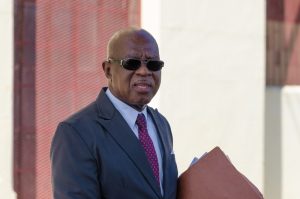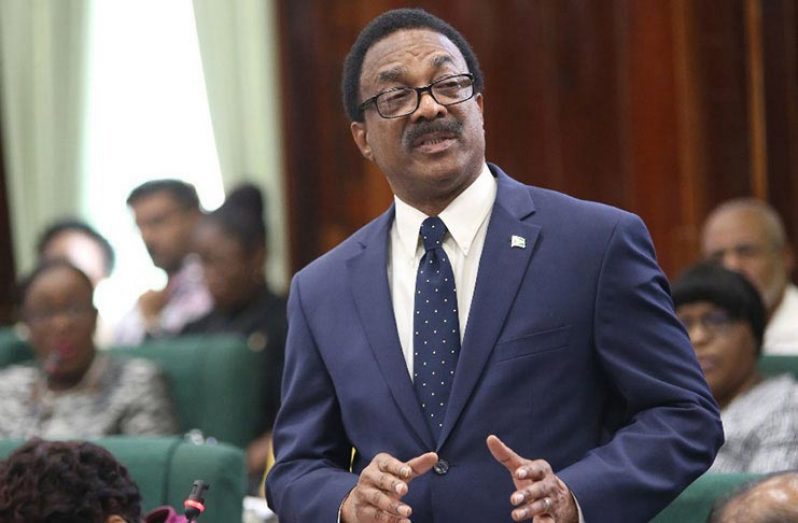…lawyers to argue positions during appeal hearing Saturday
….AG to file cross appeal today
By Svetlana Marshall
ON Saturday, the Court of Appeal will hear a series of legal arguments on an appeal challenging the High Court’s decision that the results of the General and Regional Elections must be made based on the data generated during the national recount.
In upholding the Recount Order – Order No. 60, Chief Justice (ag) Roxane George-Wiltshire said the March declarations have been overshadowed by the national recount but Tucville, Georgetown voter, Misenga Jones, in her application to the Appellate Court, said the decisions were bad in law and ought to be set side.
The date for hearing was announced on Wednesday (July 22) by Justice of Appeal, Dawn Gregory when she took the bench alongside Justice of Appeal, Rishi Persaud and High Court Judge Priya Beharry for a Case Management Conference (CMC) in the Court of Appeal broadcast live on YouTube.
The appeal was filed by Misenga Jones against the Guyana Elections Commission; the Chairman of the Guyana Elections Commission, Justice (Ret’d) Claudette Singh; the Chief Elections Officer, Keith Lowenfield; the Attorney General Basil Williams and others.
Ahead of announcing the deadlines for the written submissions, Justice Gregory indicated that the seventh and eighth named respondents – People’s Progressive Party Civic (PPP/C) General Secretary, Bharrat Jagdeo and Presidential Candidate, Irfaan Ali – had filed a cross appeal. They are being represented by Trinidad and Tobago’s Senior Counsel, Douglas Mendes, in association with Attorneys-at-Law, Anil Nandlall and Divendra Kissoon.
It was not long after that the Attorney General – the fourth named respondent – signalled his intention to file a Notice of Cross Appeal. The Attorney General, who appeared in association with Attorney-at-Law, Maxwell Edwards, said he intends to challenge part of the decision of the High Court.

“We have several grounds on which we will appeal. We are challenging of course the decision in relation to Order No. 60 and all the matters that are said to be res judicata; the question of Section 18 [of the Elections Law (Amendment) Act] and Article 177; the constitutionality of those provisions,” the Attorney General explained. He has been given until 8:00hrs today (July 23) to file his cross appeal.
Based on the timetable set by the Appellate Court, the attorneys representing the appellant have up until 12:00hrs today (July 23) to make their written submissions while the respondents in the original appeal have until 3:00hrs on Friday (July 24) to submit their written response.
“In the submissions of the respondents, we would expect submissions by the seventh and eighth respondents in relation to their cross appeal to be included,” Justice Gregory told the attorneys in the case.
The appellant was given until 12:00hrs on Friday (July 24) to reply to the written submissions made by the respondents, as well as submissions in relation to the cross appeal. The oral arguments will be heard virtually by the Appellate Court on Saturday (July 25) from 10:00hrs. At the conclusion of the hearing, the Appellate Court will announce the date for the ruling.
The appellant, Misenga Jones, is being represented by Trinidad and Tobago Senior Counsel, John Jeremie, in association with Senior Counsel, Roysdale Forde and Attorneys-at-Law, Mayo Robertson and Rondelle Keller.
Jones, who filed her Notice of Appeal on Tuesday (July 21), has laid down 23 grounds on which the Chief Justice erred in her High Court judgment. On behalf of Jones, Robertson, in laying down the grounds for the appeal, told the Appellate Court that the Chief Justice erred in law when she ruled that the issue of the constitutionality of Section 22 of the Elections Laws (Amendment) Act was res judicata.
It was Section 22 of the Elections Laws (Amendment) Act that the Elections Commissioned used together with Article 162 of the Constitution to bring the Recount Order (Order No. 60) into effect. Jones together with the Chief Elections Officer and the Attorney General had argued that Section 22 was unconstitutional on the basis that it conferred law-making powers on GECOM – a non-legislative body – in contravention with Article 170 of the Constitution. It was also argued that the Recount Order led to the establishment of a new electoral regime in breach not only of the Constitution, but also the Representation of the People Act.
But Justice George-Wiltshire, while relying on the decision of the Court of Appeal in the Ulita Moore Case ruled that the legality of Section 22 is a matter to be frontally examined by the Court at a full hearing via an Election Petition upon the completion of the electoral process. Additionally, she ruled that the matter was res judicata but Robertson told the Appellate Court that the High Court’s decisions were bad in law on the grounds that the Chief Justice misconstrued its judgment in the Ulita Moore v the Guyana Elections Commission case.

Further, Jones wants the Appellate Court to rule that the Chief Justice’s decision that the Chairman of GECOM and or the commission did not act outside of their constitutional and statutory powers was also bad in law. Following the Caribbean Court of Justice’s (CCJ’s) decision in the Ali and Jagdeo Case, the Chairman of GECOM, on July 9, instructed the Chief Elections Officer to compile an Elections Report in accordance with Section 96 of the Representation of the People Act and Article 177 (2) (b) of the Constitution but with the use of data generated during the national recount. However, the CEO had expressed concerns that the national recount was not done in full compliance with the Representation of the People Act, which stipulates that the Elections Report must be compiled using information from the Returning Officers. Lowenfield, in reverting to the March Declarations, had relied on paragraph 37 of the written judgment of the CCJ.
That paragraph reads: “The Presidential Candidate on the list for which more votes have been cast than any other list is deemed to be elected as President, and the Chairman of GECOM must so declare. Both the allocation of seats in the National Assembly and the identification of the successful Presidential Candidate are determined on the sole basis of votes counted and information furnished by the Returning Officers under the Representation of the People Act.”
Jones together with the CEO and the Attorney General had brought attention to the fact that the Returning Officers had not participated in the May-June National Recount, and as such, they had argued that GECOM ought to declare the results of the elections based on the declarations made by the Returning Officers in the 10 Electoral District in accordance with the Representation of the People Act. But the Chief Justice said the interpretation of the CCJ’s judgment put forward by Jones, the CEO and the Attorney General was “hopelessly flawed.”
Notably, in this round of the legal proceedings the Chief Elections Officer will not be actively participating. Through his attorney, Senior Counsel Neil Boston, Lowenfield informed the Appellate Court that he will not actively participate in the case. The Chair of the Elections Commission is being represented by Attorney-at-Law, Kim Kyte-Thomas.
The other respondents in the case are Shazam Ally of The Citizenship Initiative; Abedin Kindy Ali of Change Guyana, Dr. Mark France from A New and United Guyana; Leader of the Liberty and Justice Party Lenox Shuman; Daniel Josh Kanhai of The New Movement and Leader of the United Republican Party, Vishnu Bandhu.



.jpg)










